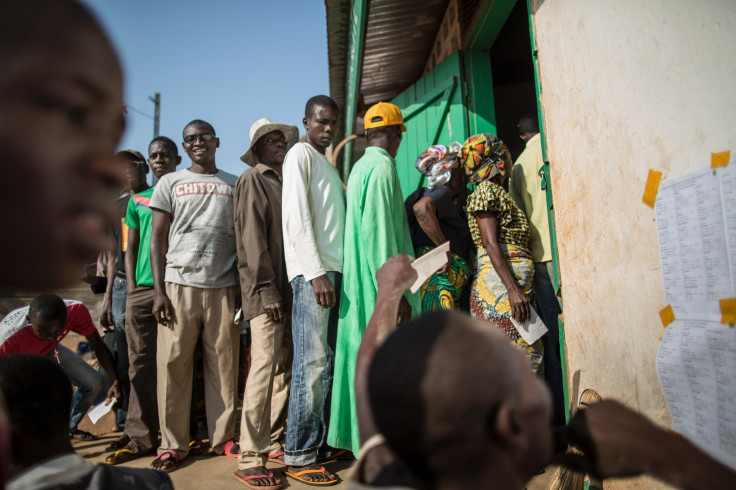Central African Republic: Violence Marks Crucial Referendum On New Constitution

Violence broke out Sunday in the Central African Republic (CAR) as polling stations opened for a crucial referendum on a new constitution. At least five people were wounded in clashes between supporters and opponents of the referendum in the Muslim-dominated PK5 enclave in the capital city of Bangui, Agence France-Presse (AFP) reported, citing a Red Cross employee.
Gunfire and bomb blasts have also been heard in the Gobongo district, which is a stronghold of the Christian “anti-balaka” militia, according to media reports.
“It's since last night that these extremists have taken us hostage. They have distributed ammunitions to their elements to use all day Sunday to prevent the vote,” Ousmane Abakar, a Muslim community leader in the PK5 neighborhood, told the Associated Press (AP).
Since its independence from France in 1960, the CAR has been one of the least developed and most unstable nations in the world. The most recent bout of violence began in 2013, when the largely Muslim Seleka rebels forced the former president Francois Bozize -- a Christian -- to flee the country.
After the rebel leaders stepped aside in early 2014, a wave of retaliatory violence by Christian militias, known as anti-Balakas, forced most of the capital's Muslims to flee.
According to a recent report by Amnesty International, in addition to the thousands killed in over two years of violence, nearly one million people have been displaced. Over the past two months, at least 75 people have been killed in Bangui alone.
Sunday’s referendum -- held just weeks after Pope Francis visited the country and urged Muslim and Christian “brothers and sisters” in the country to end the violence -- is being seen as a test run for presidential and parliamentary polls scheduled for later this month.
In addition to safeguarding freedom of religion and worship in the strife-torn nation, the new constitution, if adopted, aims to create a senate as the primary legislative body.
Despite concerns over whether provisions of the constitution would be implemented on the ground and whether it would be able to bridge longstanding religious divides, the United Nations on Saturday hailed the referendum as a crucial step toward “a stable future for the country and its people.”
“The Secretary-General calls on all national stakeholders to ensure that the referendum is conducted in a peaceful and credible manner,” a statement issued Saturday by Ban Ki-moon’s office said.
© Copyright IBTimes 2025. All rights reserved.






















